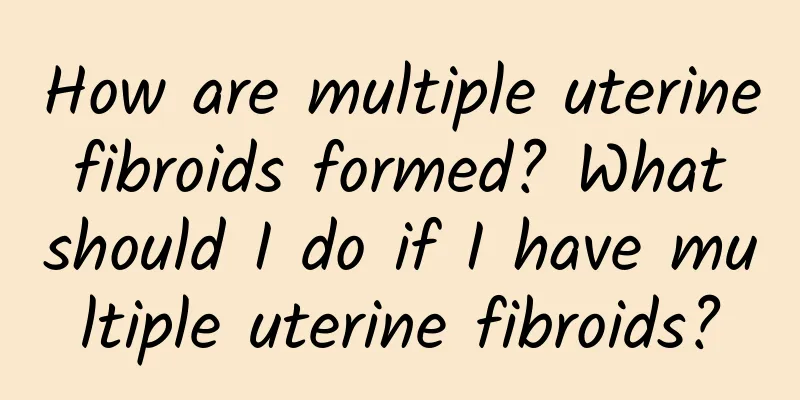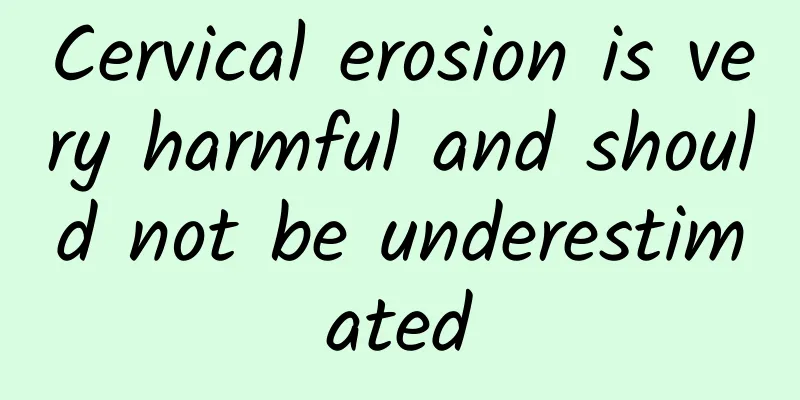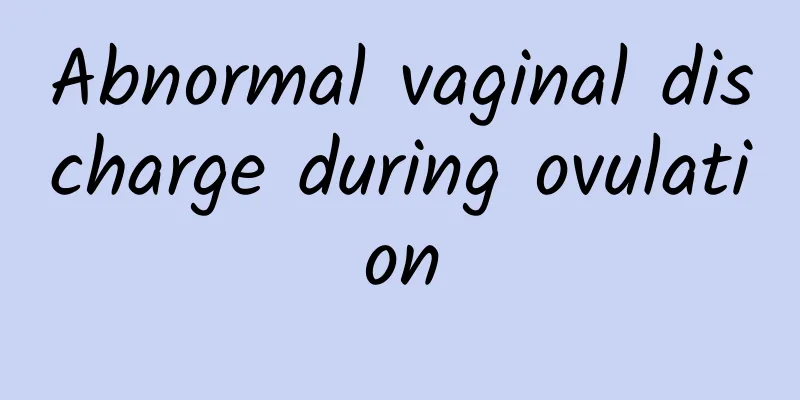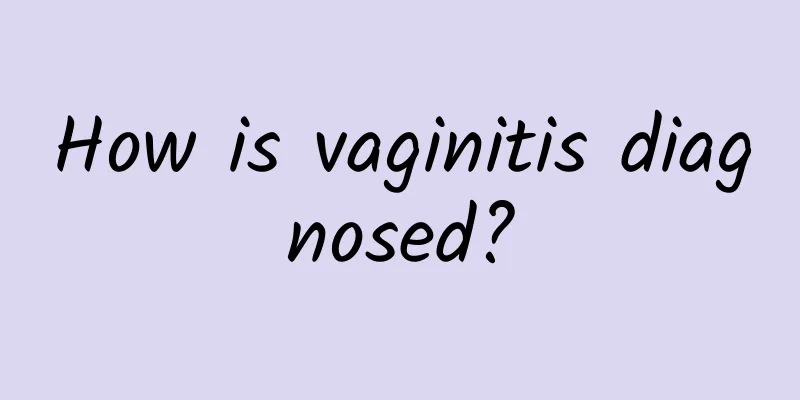Ovarian cyst torsion compressing the uterus
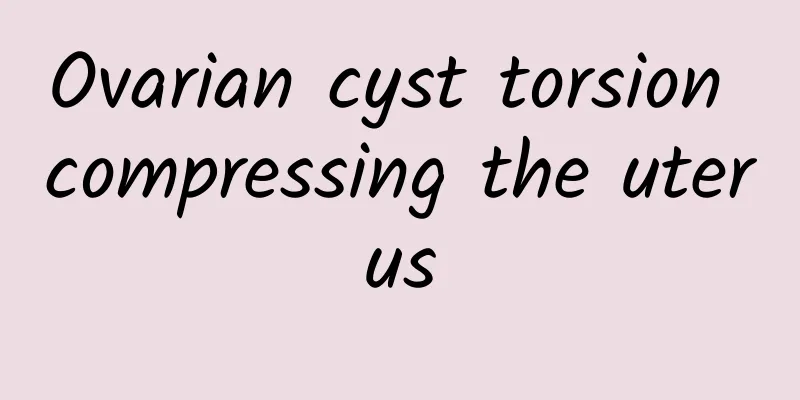
|
Ovarian cyst torsion compressing the uterus is a gynecological emergency that may cause severe abdominal pain, nausea, vomiting and other symptoms, and requires prompt medical attention. Ovarian cyst torsion is caused by the cyst rotating around the ovary, resulting in obstruction of blood supply, which in turn compresses the uterus or other nearby organs. Treatments include medication, surgery and postoperative care. 1. Causes of ovarian cyst torsion The occurrence of ovarian cyst torsion is related to many factors. Genetic factors may increase the risk of cyst formation, and some women are more likely to develop ovarian cysts due to family history. Environmental factors such as long-term stress, bad living habits such as staying up late, and irregular diet may also induce cysts. In terms of physiological factors, fluctuations in hormone levels such as abnormal menstrual cycles may cause cysts to enlarge. Trauma or strenuous exercise may also cause torsion. Among pathological factors, torsion is more likely to occur when the cyst is large or in a special location. 2. Symptoms and diagnosis of ovarian cyst torsion Typical symptoms of ovarian cyst torsion include sudden severe pain in the lower abdomen, which may be accompanied by nausea, vomiting, fever, etc. The pain is usually concentrated on one side and may radiate to the waist or thigh. The doctor will confirm the diagnosis through imaging methods such as ultrasound, CT or MRI, and perform laparoscopy if necessary to clarify the condition. 3. Treatment methods Drug treatment: For patients with mild symptoms or who are temporarily unable to undergo surgery, analgesics such as ibuprofen can be used to relieve pain, and antibiotics can be used to prevent infection. Hormonal drugs such as oral contraceptives can regulate hormone levels and reduce the recurrence of cysts. Surgical treatment: Laparoscopic surgery is the first choice, with less trauma and quick recovery, and is suitable for most patients. Open surgery is suitable for patients with larger cysts or complicated conditions. Ovarian cystectomy can completely solve the problem, but whether to retain the ovaries depends on the patient's age and fertility needs. Postoperative care: After surgery, you need to rest, avoid strenuous exercise, maintain a light diet, and eat more foods rich in protein and vitamins such as eggs, fish, and fresh vegetables. Regular check-ups should be conducted to monitor ovarian function. 4. Prevention and daily management The key to preventing ovarian cyst torsion is to have regular gynecological examinations, especially for women of childbearing age. Maintain a healthy lifestyle and avoid overwork and mood swings. Reduce the intake of high-fat and high-sugar foods and eat more fiber-rich foods such as whole grains and beans. Moderate exercise such as yoga and walking can help regulate endocrine and reduce the risk of cysts. Ovarian cyst torsion and compression of the uterus is a disease that requires emergency treatment, and timely medical treatment is the key. Through drug treatment, surgical intervention and postoperative care, most patients can recover. In daily life, regular physical examinations and health management are important measures to prevent diseases. |
<<: Ovulation bleeding red urine
>>: How to check for abnormal vaginal discharge
Recommend
Brown sugar and black bean porridge to prevent and treat amenorrhea
For amenorrhea, people generally treat it with dr...
Is it expensive to treat endometrial thickening?
Endometrial thickening is a common disease that o...
Taiwan's millennial office workers are the least active! Obesity Problems Start Early
Obesity is not a blessing! Instead, it is the cul...
If you want to lose weight after exercising, should you eat or not?
When you are hungry after exercise, do you want t...
Symptoms of vulvar leukoplakia
When it comes to vulvar leukoplakia, many women m...
New dietary goals for hyperprolactinemia
Dietary conditioning is very important for patien...
Is ballroom dancing effective for irregular menstruation? How effective is ballroom dancing and yoga in regulating menstruation?
If you have irregular or uncomfortable periods, d...
Successful pregnancy with Bartholinitis
Nowadays, Bartholinitis has gradually become a co...
What are the symptoms of pelvic effusion?
What are the symptoms of pelvic effusion? Pelvic ...
What are the common symptoms of cervicitis?
Most cases of cervicitis are caused by trauma to ...
How to treat bilateral adnexitis
How to treat bilateral adnexitis? Bilateral adnex...
Why does bleeding start again after a few days of menstruation at the age of 49?
Recently, a friend of mine encountered a worrying...
What is functional uterine bleeding in adolescence?
Dysfunctional uterine bleeding in adolescence is ...
Enjoy a slim and good life! Start by implementing the three tips of rejecting sugar, picky eating, and hyperactivity.
Obesity has a great impact on health. Among the t...
It is necessary to understand the symptoms of vaginitis
Experts say that through the symptoms of vaginiti...
